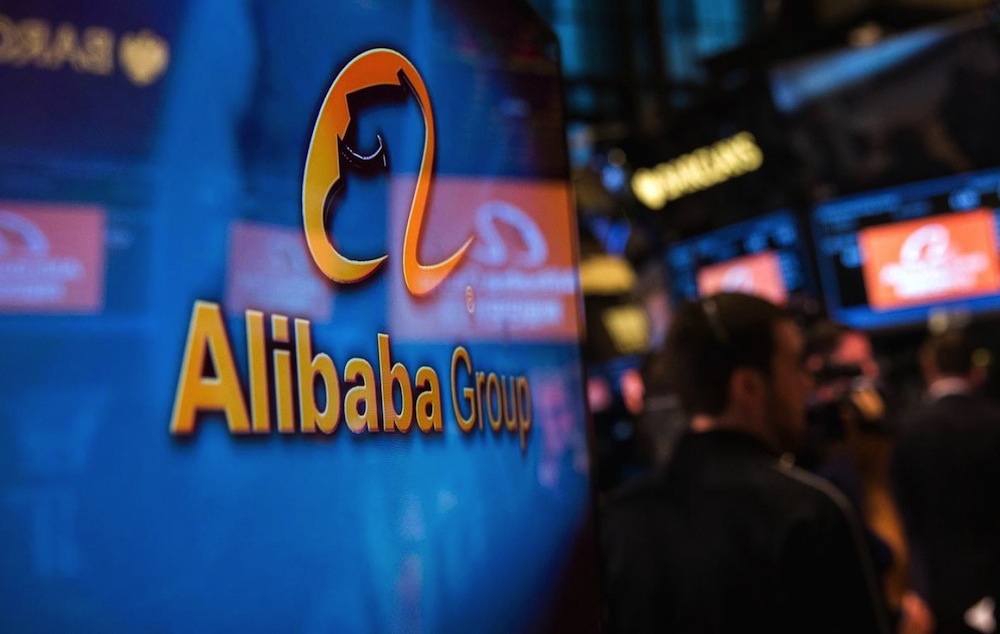E-commerce powerhouse aims to ramp up international expansion with strategic partners Auchan Retail of France and Taiwan’s Ruentex Group

It is a familiar scene each morning in China – lines of shoppers, many of them retirees, queuing up outside their neighbourhood supermarket. Once the doors open, they dash for the fully stocked bins to select the choicest cuts of meat and the freshest vegetables and fruits.
But changes are in store for these early-bird shoppers.
On Monday, Alibaba Group Holding unveiled its strategic alliance with French company Auchan Retail and Taiwanese conglomerate Ruentex Group that is expected to help expand worldwide the Chinese e-commerce giant’s “New Retail” initiative, which combines the strengths of online shopping with those of physical retail stores.
Alibaba agreed to pay HK$22.4 billion (US$2.9 billion) to obtain a 36.16 per cent stake in Hong Kong-listed Sun Art Retail Group, which runs one of the biggest hypermarket chains in China, from Ruentex.
Auchan Retail, which formed Sun Art Retail as a joint venture with Ruentex in 1998, said it has raised its stake in the Wan Chai-based hypermarket chain to 36.18 per cent for an undisclosed amount. Ruentex retained a 4.67 per cent interest in the venture.
“We will be going to the global market with this alliance,” Alibaba chief executive Daniel Zhang Yong said in a press conference in Hong Kong on Monday.
That would entail tapping the offline expertise of Auchan Retail, which operates in 17 countries and is widely regarded as one of the world’s five largest food retailers. It has 3,715 so-called points of sales, including hypermarkets, supermarkets and convenience stores.
“Going forward we will explore various opportunities, together with Auchan, to try to improve our services in [overseas] markets,” said Zhang.
He pointed out that Alibaba currently has a strong online retail presence in Southeast Asia, via subsidiary Lazada Group, as well as fast-developing businesses in Russia, Spain, France and the United States through international retail marketplace AliExpress.
With the investment in Sun Art Retail, Alibaba gains access to the chain’s 446 hypermarkets that operate under the RT-Mart and Auchan brands across 29 provinces in China. The company also runs superstores and unmanned outlets under the Auchan Minute brand.
That deal followed Alibaba’s 2015 acquisition of a minority shareholding in Chinese consumer electronics retailer Suning Commerce Group and 2014 investment in department store chain Intime Retail Group, which it has decided to take private in a US$2.6 billion deal.
Chan Wai-chan and Jacques Penhirin, partners at management consulting firm Oliver Wyman, said on Monday that Alibaba’s new retail alliance was “more important than Amazon’s acquisition of Whole Foods in the US”.
“Sun Art is the largest and one of the most respected grocery players in China, while Alibaba already has a large grocery business – making this an alliance between two leading players in retail,” Chan and Penhirin said.
Alibaba operates Hema, a supermarket chain where shoppers can place orders and pay for groceries and other products through a mobile app, with deliveries made from the store or from nearby logistics centres. If Hema is any guide, the RT-Mart and Auchan outlets of Sun Art Retail are in for a similar digital makeover.
Zhang pointed out that a “digital transformation” was the first order of business for Sun Art Retail, so that all its relevant data can be used to help improve operational efficiency.
Grocery retailing, unlike other categories, is putting up greater barriers to the shift online, with online sales in the low single digits in terms of market share, according to Steven Kwok, associate partner at OC&C Strategy Consultants.
“This is apparent ... globally, but perhaps even more pronounced in China,” said Kwok, adding that consumers want to touch and pick the produce they are buying.
At an RT-Mart near Beijing’s Olympic Park, shoppers were busy at the vegetable and fruit section on Monday afternoon. A 76-year-old grandfather surnamed Li, who was picking out mushrooms, said he would buy more durable items like milk and nuts online but not perishables. “They can show you fresh-looking pictures online, but I don’t trust them,” he said. Another shopper,a 27-year-old waitress who gave her name as Yuan, said that shopping “for fruits and vegetables, it’s always better to see for myself”.
Both Alibaba, which owns the South China Morning Post, and rival JD.com, through its alliance with Wal-Mart Stores, have been making inroads into brick-and-mortar retail operations.
Alibaba is likely to continue buying offline retailers to further its “New Retail” strategy, even as growth at its online shopping platforms remains strong, according to Yu Xue, a senior analyst at IDC China.
“Physical stores serve an indispensable role during the consumer journey, and should be enhanced through data-driven technology and personalised services in the digital economy,” said Zhang.
In China, physical transactions accounted for about 85 per cent of total purchases last year, or about US$4.2 trillion, according to the statistics bureau.
SOURCE: http://www.scmp.com/business/companies/article/2120655/alibaba-buys-362pc-stake-wal-mart-style-hypermarket-chain-us29
_Logo%20horizontal%20bleu%20et%20vert-1.png?width=1398&height=422&name=(RVB)_Logo%20horizontal%20bleu%20et%20vert-1.png)
